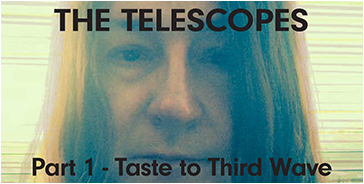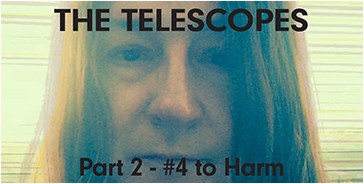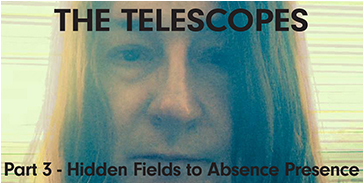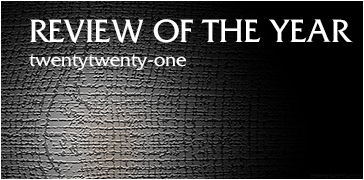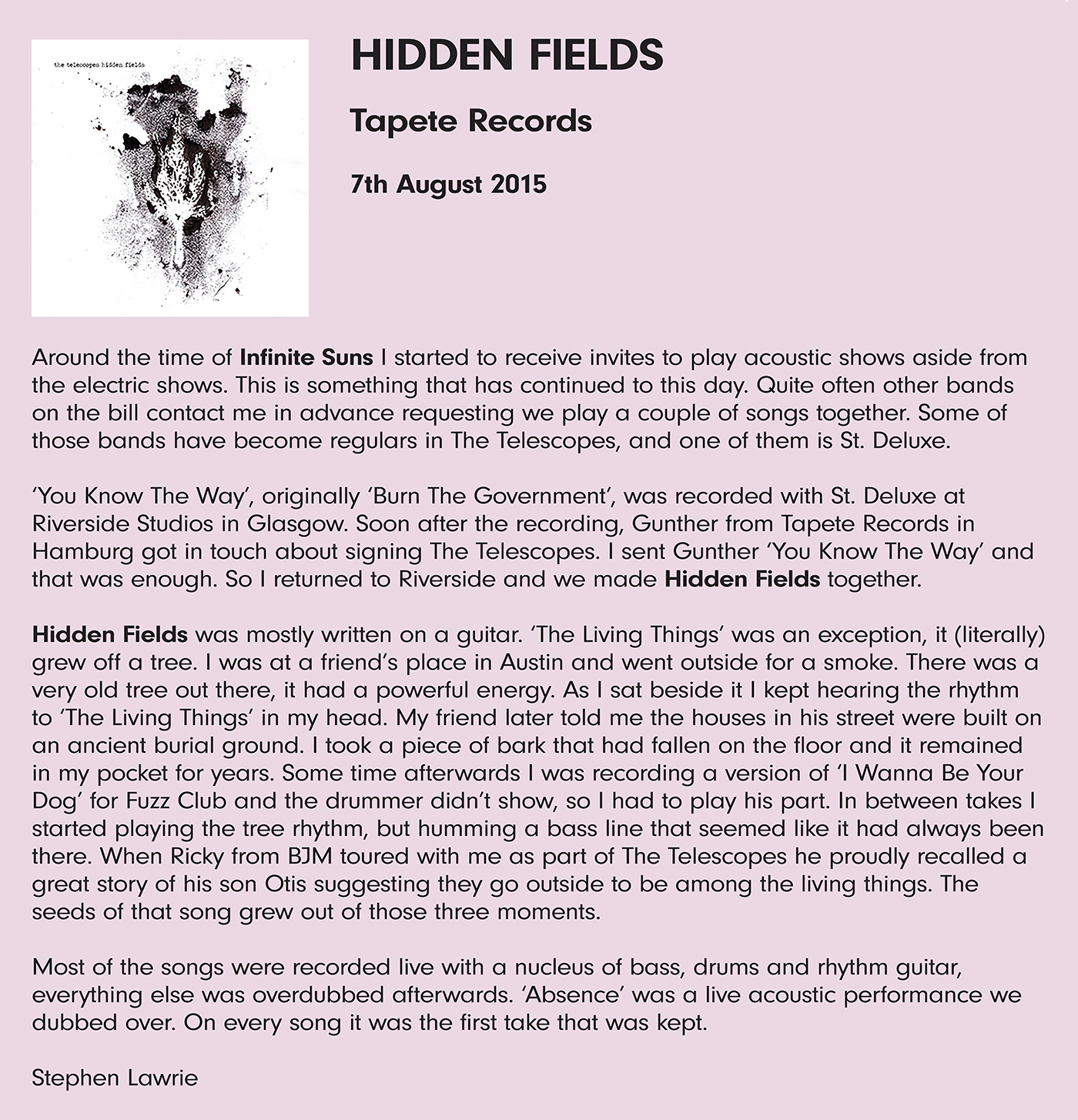

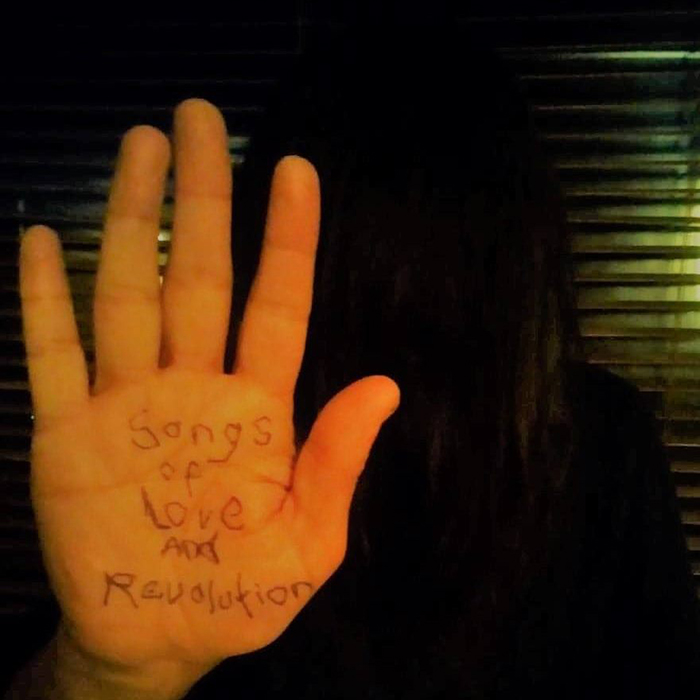
PART THREE of our interview with Stephen Lawrie of The Telescopes where he discusses his work from Hidden Fields to Absence Presence.
After his forays into improvisation, Stephen Lawrie again moved on to new ground. The appearance of Hidden Fields two years down the line saw a return to almost conventional songwriting, though his approach to his craft had clearly been influenced by this period of experimentation. Improvisation had now been added to the armoury and would influence all of Lawrie’s future works: The Telescopes' albums would continue to evolve.
Improvisation plays a big part in everything I do, even the more song-orientated works. It's a way of fishing for ideas: not all of the arrangements come to me at once, the bass, drums and rhythm guitar parts usually come to me during the writing process, the rest I sometimes have to improvise with myself to arrive at. Although the writing process itself may also use improvisation to develop shape, trial and error.

Hidden Fields contains five recognisable songs, averaging a mere seven minutes apiece, and was recorded with Jamie Cameron, Ross Cameron and Brian McEwan of Glasgow noise-rockers St. Deluxe, ideal musicians to help shape these more rigid song structures. The mood of the record is intensely introverted with the music holding a bleak density that borders on the brutal yet still frames occasional moments of beauty. It’s is a record that has an immediate impact; Hidden Fields is as visceral as anything that has gone before, turning you inside out as guitars twist and burrow and protest. Though all of the tracks plough on inexorably with barely a glance to the side, it’s impossible not to be drawn to the grim splendour of the parade.
There are a lot of people from great bands playing on The Telescopes’ records. I’m constantly writing and when it’s ready to go down it goes down how it needs to be. If there’s a connection going on with other musicians then we work on the kind of material that suits the way we are together. It’s all about hitting that place.
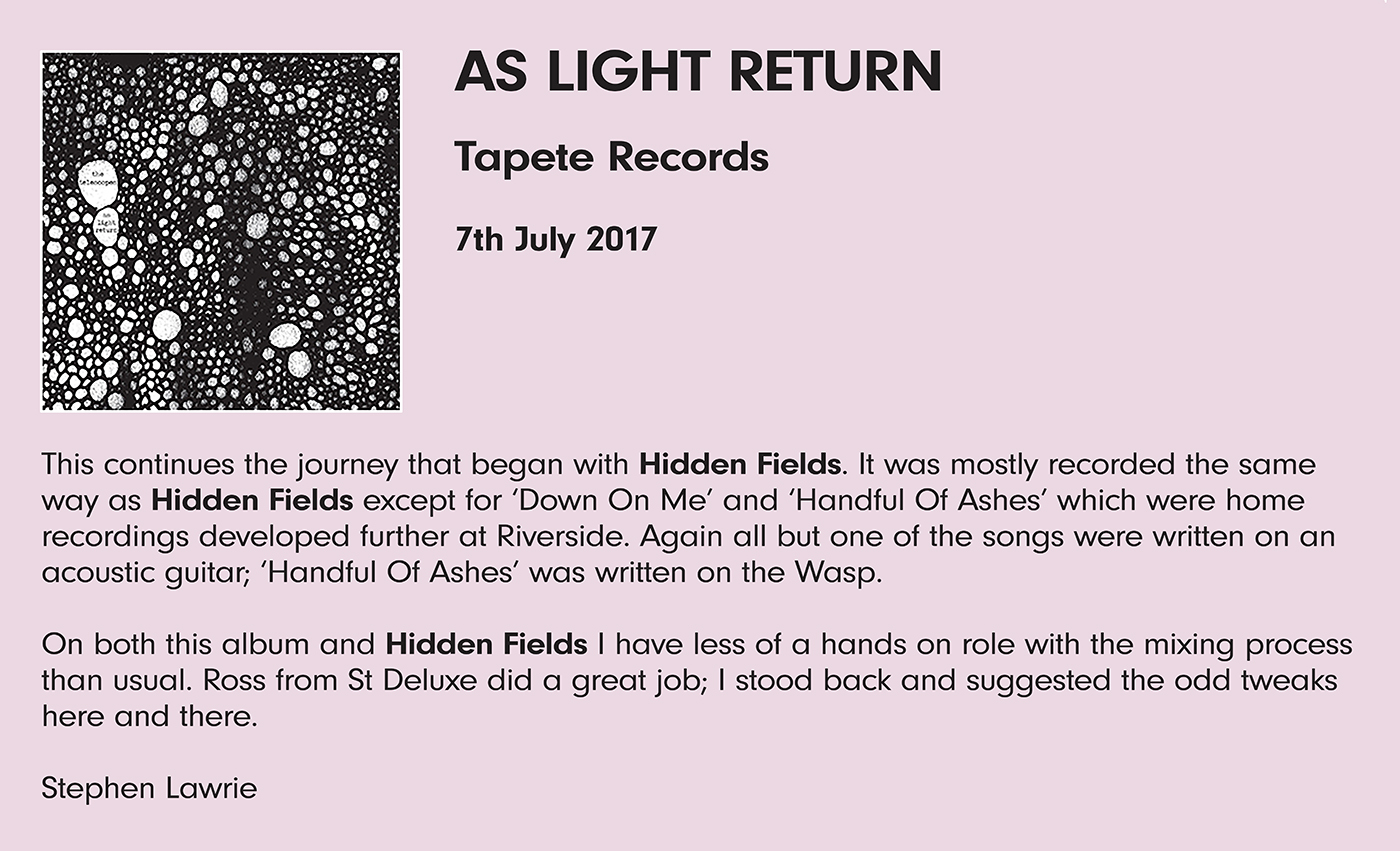
With St Deluxe remaining on board, Lawrie's focus shifts slightly again on As Light Return, released nearly two years later, with the five tracks barely contained in form and leaking darkness through failing seams. There's feedbacking and distorted guitars swamping this record, fermenting in layers as their weight pushes against the repetitive rhythms, threatening to bury them. It's the art of decomposition and it’s pretty bloody riveting.
"Every thread has come undone," laments Lawrie on 'Something In My Brain' and that appears to be the theme of this record. Shadows of songs flicker amongst the darkness as rationality falls apart. Occasionally they are completely lost, and occasionally Lawrie attempts to convince himself that all is well. "Everything is aware" he suggests in 'You Can't Reach What You Hunger', a song that sounds like the Mary Chain's 'Taste Of Cindy' fed gargantuan doses of nitrazepam. The irony is both amusing and terrific. Fourteen minutes of 'Handful Of Ashes' close proceedings, the Wasp synthesizer looping desolately in an increasingly hostile environment as Lawrie’s barely discernable voice offers little more than surrender. There is not much light here, but Lawrie knows its return can bring him redemption. And pouring his desolation into sound is the key to opening the door.
I was thinking about the term ‘slight return’ which is sometimes used as another word for a variation of a musical theme, 'Voodoo Chile' by Hendrix for example. For some unknown reason I was prompted to scribble down aslightreturn. Both meanings resonated, the album is a slight return to the denser moments of #4 and Taste even, but from a new perspective. And I truly believe in the healing powers of music; it can reach all the way down to the deepest darkest lows and take you to the sun and back. It can speak on many levels. I settled on As Light Return for that reason, it seemed more appropriate than keeping the duality of using the phrase in an ambiguous way.
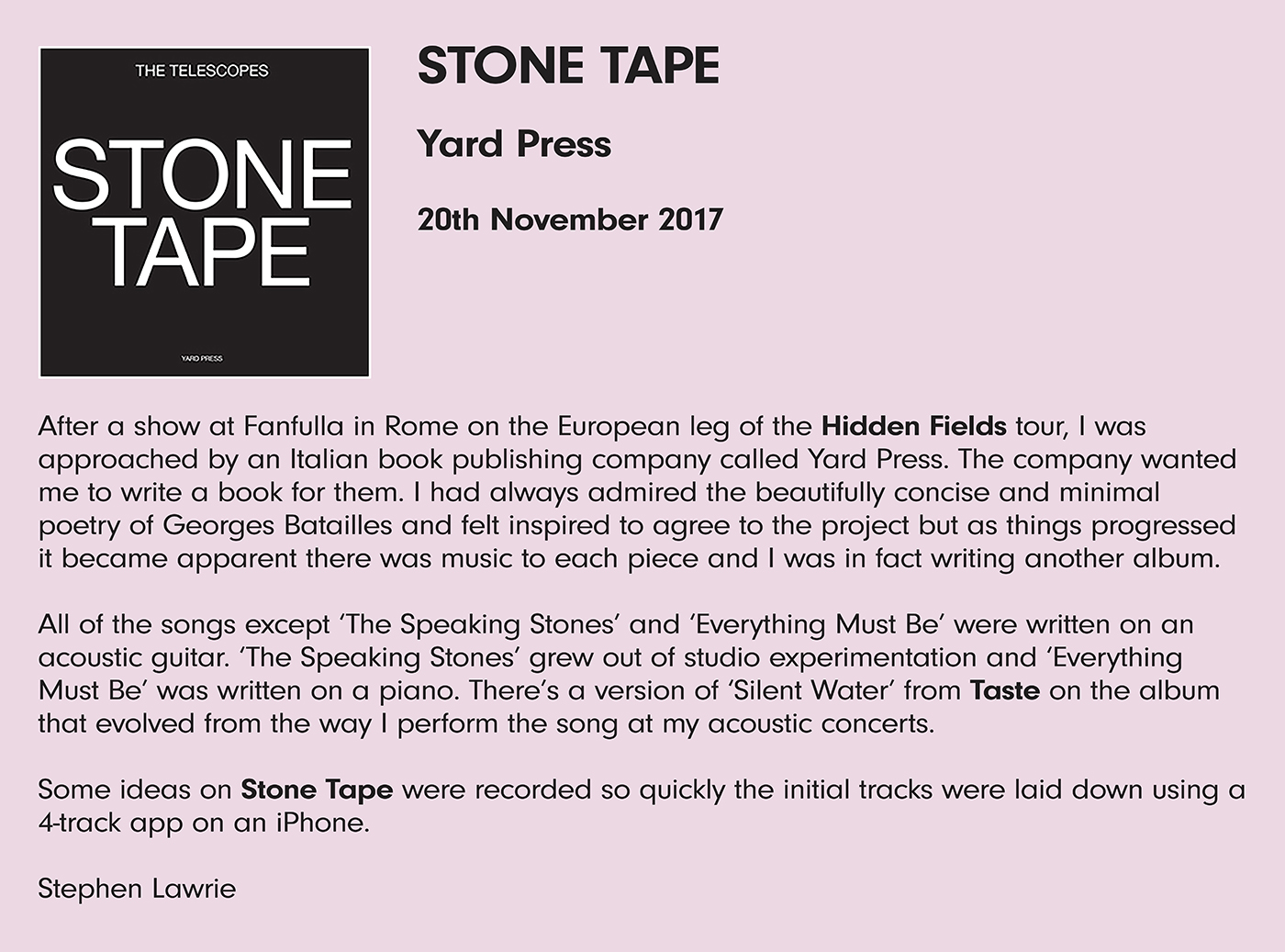
Poet, philosopher and theorist, Georges Batailles has been described as "standing at the crossroads of knowledge" with his greatest achievement in his own eyes being that he had succeeded in "blurring the lines". That such an academic would appeal to Lawrie is unsurprising given that The Telescopes’ music could easily be described in a similar manner. When thinking of writing a book, Lawrie was looking to emulate the minimalism of Bataille's poetry, his use of negative space, cramming as much as possible into each short sentence.
Stone Tape Theory speculates that inanimate materials can absorb energy from living beings, an idea that was introduced by a number of 19th-century scholars and philosophers in an attempt to provide a natural explanation for supernatural phenomena. If the stones can absorb the energy of the past then their tales would be just as economic as Batailles', echoing the power and not the background noise.
The project inspired Lawrie to produce his second album of 2017 in quick time. Here he reverts to a more classical approach, with clearly discernible song structures and the use of the more familiar aspects of psychedelia: repetitive beats and banging tambourines playing over deep drones, or forlorn pianos assessing their depth. Guitars hover at the edges without asserting any authority. ‘Silent Water’ is the closest Lawrie has come to a straightforward song for many years, touching the edges of balladry, and there’s a warmth that is unusual for The Telescopes. Recorded as a solo project, Lawrie writes, composes, performs, arranges and produces all of the tracks though he was not responsible for the artwork on the album cover which some people felt did not do justice to the music it housed.
The Stone Tape vinyl cover was the label Yard Press’s aesthetic. They turned down my preferred idea, but Cold Spring used it on the CD reissue. I thought our artwork always suffered up until Third Wave. Peter Green from Double Agent has a graphics background and he taught me a lot. I guess ‘Celeste’, ‘Everso’ and ‘Kick The Wall’ were good sleeves from prior to that. The ‘Flying’ sleeve was a very similar idea to ‘Celeste’ and ‘Everso’. So many people ‘borrowed’ the logo from that EP, The Word programme was one, but quite a few bands also used it. It was a bit cheeky considering the design company sold the copyright to The Telescopes. I didn’t like that logo very much, though. It’s not that I don’t have control of our artwork, it’s more a case of being clueless about it.
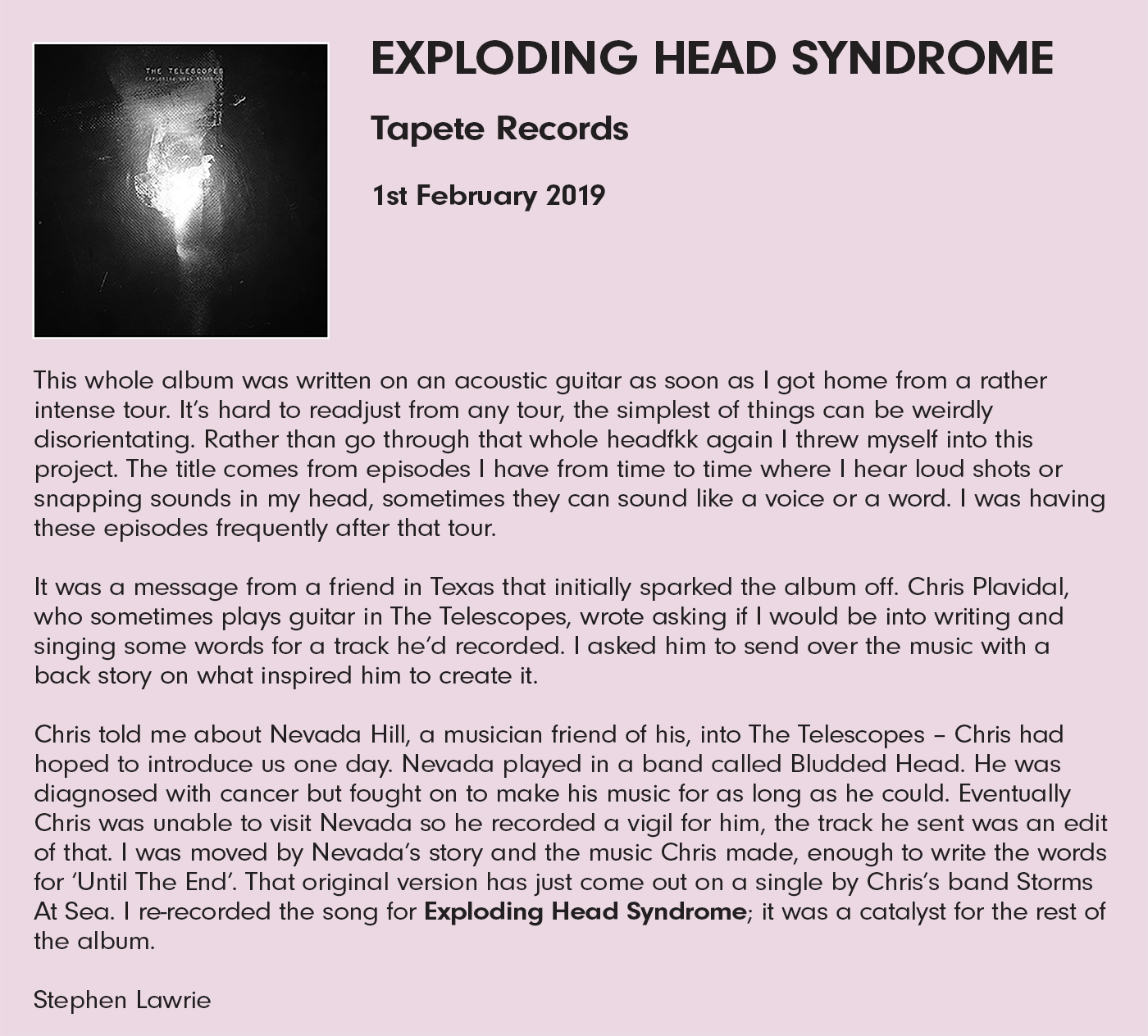
Exploding Head Syndrome followed just over a year after Stone Tape, and is named after a little researched type of parasomnia which occurs when a sleeper experiences an auditory hallucination in the form of a sudden loud noise which often appears to have come from inside the head. Lasting only a brief time, the condition can affect sleep patterns, cause anxiety and lead to daytime fatigue. The songs here mirror the results of this affliction rather than jolting you into life with sudden bursts of sound. This is an album very much muted and oppressed, an intimate glimpse at emotional resignation and a virtually complete loss of hope. "Take me by the hand for a spell / Lead me nowhere, I know it well," Lawrie mumbles on 'Nothing Was Held'. The sad thing is, it is not loss that Lawrie fears but his overwhelming expectation of loss. Everything will fail, everything falls apart; the EHS is the death of dreams. "Don't put your happiness in the hands of another / They will let you down."
Following the path of some of the tracks on Stone Tape, this collection of songs is pleasingly wordy, though the words largely hide their faces. The oppressive bottom end drones dominate, though flashes of keyboards, white noise, guitar and bass occasionally break through the morass, most impressively on 'I Know You've Got Something Inside'. At other times you have to strain your ears to dig out sounds but, as always with Lawrie, deeper investigation is invariably profitable. A sad record, at times touching, and at times worryingly familiar.
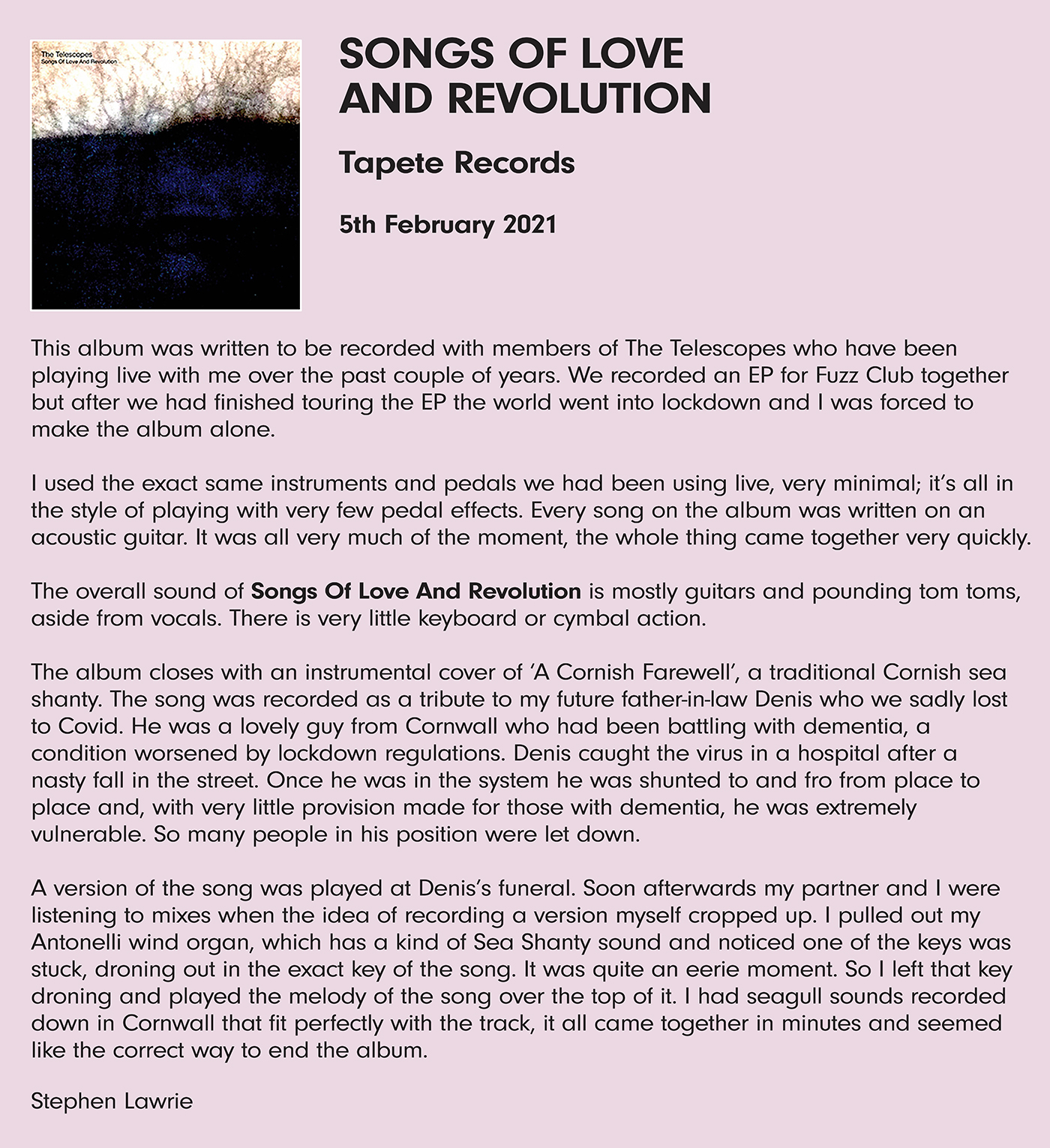
This is a beautifully constructed record as the dichotomy that lies at its heart is built into the body of every song. All eight are shaped the same way: a short bassline is looped throughout, along with a simple, one-hand drumbeat which never alters. This creates a constant that runs through the whole; every track given a solid foundation that speaks of immovability and power. It means that anything else that is added can only be surface-deep for against such certainty no force can ever really threaten. What, then, can revolution alter? What can love change? The backdrop is set, the world unbending, everything else is merely fleeting. Including life. Lawrie acknowledges this, "When the roll you're on has gone, this train will keep on rolling on."
The question he faces is whether this negates his emotions. He is in love and swamped by these strange waves, "all encompassing in all they bring." They will ultimately fade, but the question becomes whether it is the very transience of love that makes it so important: the flashing lights on the surface that captivate and enthrall for however brief a moment in time, the splashes of colour that make you forget the blackness at the heart of all things. "There is no shore in this life," he convinces himself, "There is only the wave." Deep down at the roots, he knows nothing will alter, "The ground will keep on holding, holding, holding..." The unshakeable rhythms are the roots. Above them Lawrie weighs up hope against certainty; his voice sometimes virtually indistinguishable, occasionally a plaintive whisper, sometimes more.
The guitars create the waves, they leave us mesmerised and thrilled and ready to fight. They shape the beauty of the souls that are engulfed in the waves which tell them that life matters, not the certainty of a doomed existence. Love is not rooted, so fight for the moment. "Living is dreaming of living. Nothing seems how it should seem." Heavily distorted, guitars screech and buzz and flow as they wash over the inexorable beats, creating patterns that are occasionally breathtaking in their raw beauty. There's hope in their defiance as they make their mark against every background. They throw themselves against the relentless march of time and dance delicately around hypnotic calls to surrender. They hammer and shriek and whisper and entrance. There may be ultimate defeat, but it was one hell of a ride.
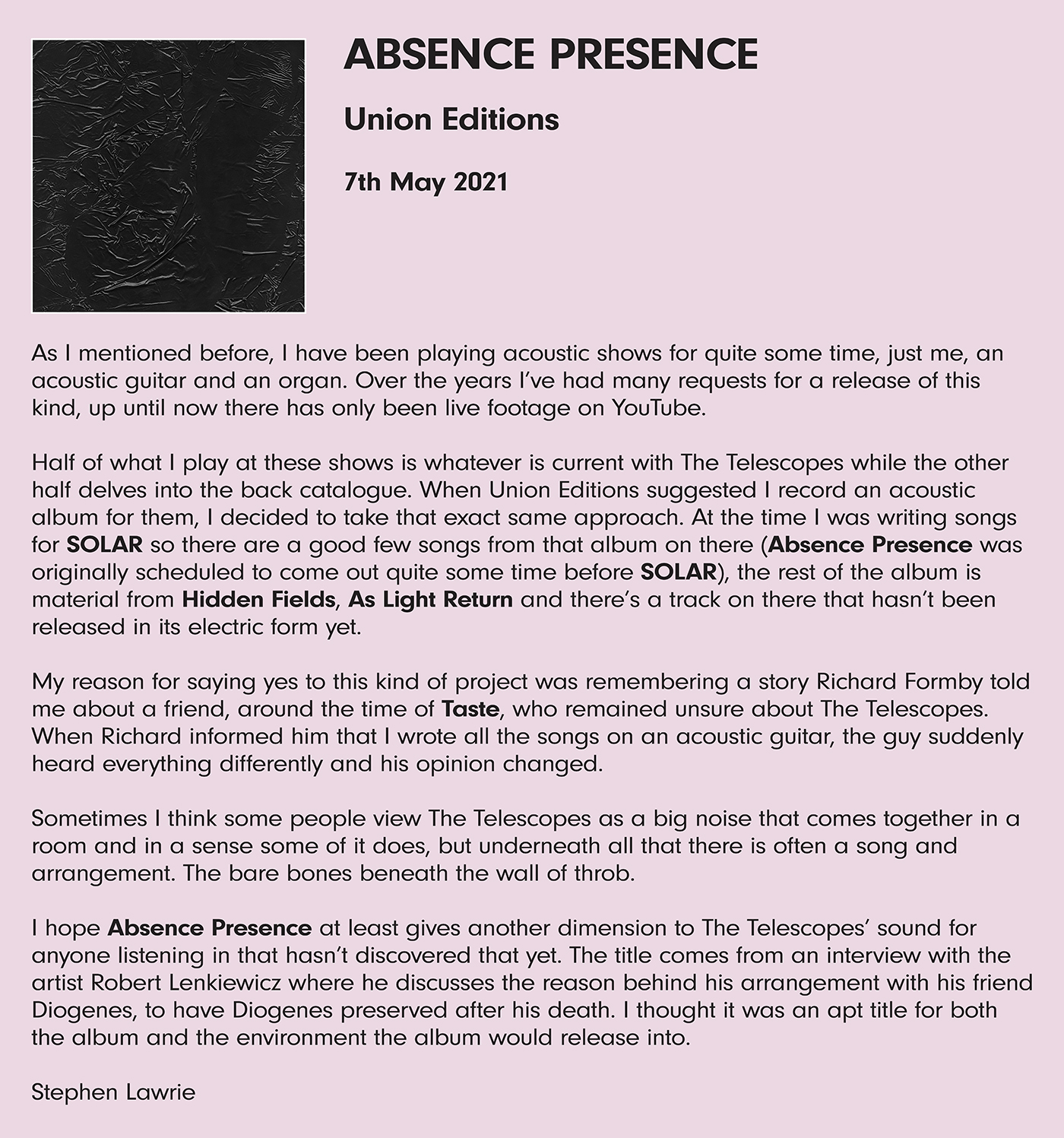
The marvel of The Telescopes is that their twelfth studio album, released some thirty-two years after their debut, is their best ever work, and that it is just the last in a whole series of remarkable collections. No two of their records have been the same, every one looks to progress and re-shape the notion of what an album should be. And in so doing they re-shape our thoughts on all of the ones that have gone before. Stephen Lawrie is truly an important artist; hungry to learn, develop and improve. And happily there will be much more to come from him. We look forward to the fourth installment of this feature a little way down the line.
Time has changed the way I hear my earlier records. I'm always measuring up how close the finished song is to what I originally imagined. It's hard to stop questioning whether I am satisfied with the end result, I have to reach a compromise with myself that it's the best I could do within a given time. It's difficult because the songs are always in flux for me but a record is a fixed moment. At the time of release I am not content with any recordings. I'm a blank page at the time of release, subject to the opinion of others.
Sometimes it's unavoidable to hear your own records, that's when it surprises me. I've walked into record shops and started digging the music coming over only to realise it's The Telescopes. Occasionally I listen out of curiosity, but it's usually to put insecurities to rest, which is something that is never resolved. Sometimes the things I'm insecure about with an album are the things that endear the listener. My favourite part of the process is making the music, not so much reflecting on it, but it is necessary for an artist to be in touch with their works.
As well as the bands I was originally influenced by, lately I have been listening to Jim Reeves, John Lennon’s early solo stuff, Bobby Pickett, Lee Marvin, Howlin Wolf and The Animals. I still listen to the same stuff I did in my teens but I have picked up a lot of other stuff on the way like Sun Ra, Pharoah Sanders, Alice Coltrane, AMM, Keith Rowe, Mouse on Mars, Third Eye Foundation, Pram ... so much really.
And I’ve recently got into Wham!




